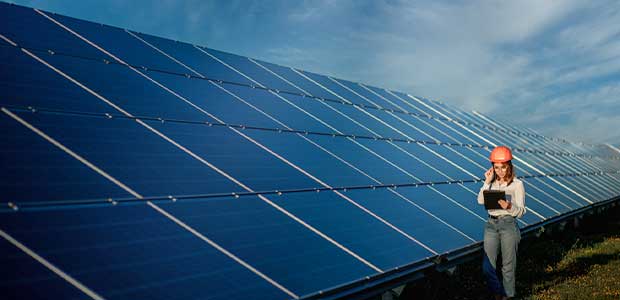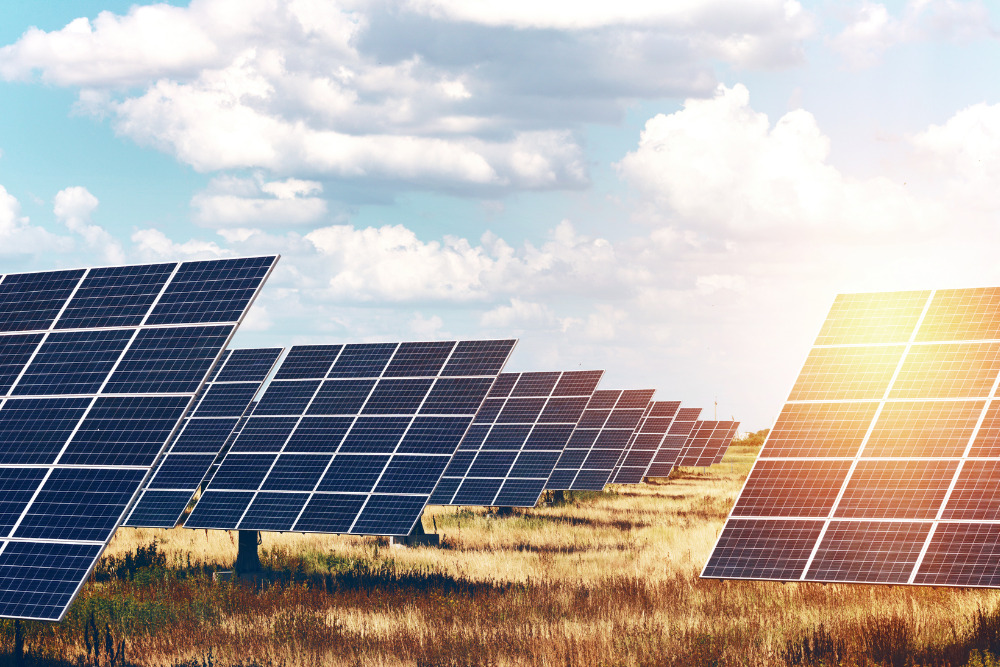How Solar Power Can Aid You Save Cash and Minimize Your Carbon Footprint
The integration of solar power right into your energy profile offers an engaging possibility for both monetary cost savings and environmental stewardship. As numerous federal government motivations come to be available, the inquiry emerges: exactly how can one properly navigate the first investments and continuous benefits of solar modern technology to maximize both financial and ecological gains?
Recognizing Solar Energy Savings
While the shift to solar energy commonly includes a first investment, comprehending solar power cost savings is important for homeowners and companies alike. Solar power systems can significantly lower electrical power expenses by utilizing the sun's power, equating right into substantial long-lasting financial benefits.
Furthermore, solar power systems may get approved for numerous financial rewards, including tax credit histories and rebates, even more improving their cost-effectiveness. The accessibility of web metering enables individuals to sell excess power back to the grid, producing an extra profits stream. These variables add to the total savings linked with solar energy.

In addition to route financial financial savings, solar energy supplies the added benefit of increasing building worth. Residences furnished with solar panels are frequently extra eye-catching to purchasers, as they guarantee lower power prices - Simply Solar Illinois. Comprehending these components is vital for anyone thinking about solar power, as it highlights not simply the prospective monetary gains, but also the broader ecological and economic advantages of embracing renewable resource services
First Expenses vs. Long-Term Perks
When evaluating solar power, it is essential to weigh the first costs versus the long-term benefits. The ahead of time investment for solar panels, setup, and relevant tools can be considerable, usually ranging from $15,000 to $30,000, relying on the system dimension and home energy requirements. This first expenditure may deter some house owners; nonetheless, it is crucial to take into consideration the possible financial savings over time.
When mounted, solar power systems can significantly lower and even remove month-to-month electricity bills, leading to substantial long-lasting financial advantages. Research studies show that property owners can conserve anywhere from $10,000 to $30,000 over the life expectancy of their solar system, usually 25 years. Additionally, lots of states use incentives, tax obligation credit ratings, and refunds that can balance out preliminary costs, making solar much more easily accessible.

Minimizing Your Carbon Impact
Minimizing your carbon impact is a vital factor to consider in today's ecologically conscious society, and taking on solar power is just one of the most effective techniques to attain this objective. Solar power is a clean, renewable energy that hop over to here substantially lessens reliance on nonrenewable fuel sources, which are significant factors to greenhouse gas emissions.

Moreover, the widespread fostering of solar innovation motivates the advancement of environment-friendly work and supports advancements in energy storage space and efficiency. The even more individuals and organizations purchase solar energy, the greater the cumulative reduction in carbon discharges, cultivating a cleaner environment for future generations.
Federal Government Incentives and Rebates
Taking on solar energy not just benefits the environment yet can additionally cause substantial economic savings, particularly with the accessibility of government rewards and refunds. Different federal, state, and neighborhood programs are created to encourage house owners and companies to purchase solar power systems, making the transition extra inexpensive.
Among the most prominent incentives is the Federal Financial Investment Tax Obligation Credit History (ITC), which allows solar system owners to subtract a considerable percentage of the installation expenses from their government tax obligations. This motivation has been crucial in reducing the ahead of time expenses connected with solar power systems. Furthermore, lots of states provide their own tax credits, grants, and rebates that can better boost financial savings.
Furthermore, some city governments give residential or commercial property tax exemptions for solar installments, making sure that home pop over here owners do not face increased residential property taxes as a result of their sustainable energy investments. Utility firms may likewise offer incentives, consisting of net metering and feed-in tariffs, which permit solar energy customers to market excess power back to the grid.
Selecting the Right Solar System
Selecting the appropriate planetary system is vital for optimizing power effectiveness and financial advantages. The choice rests on a number of factors, consisting of power requirements, budget plan, and offered area. House owners ought to start by assessing their electricity usage to figure out the system dimension required for optimal performance.
Following, consider the various types of solar technologies offered. Simply Solar Illinois. Photovoltaic (PV) panels are the most common, converting sunshine straight into electricity, while solar thermal systems concentrate on heating water. Each type has unique benefits depending on specific needs
Budget plan considerations are additionally paramount. First installment costs can vary substantially, so it is essential to compare quotes from multiple carriers and discover financing choices. Federal government incentives and refunds can additionally decrease the monetary problem, making solar systems much more accessible.
Final Thought
In summary, solar power offers a viable option for attaining significant expense savings while at the same time decreasing carbon exhausts. The initial investment, though considerable, returns substantial lasting monetary view it advantages, with potential savings ranging from $10,000 to $30,000 over 25 years. The environmental advantages of solar power contribute to lasting practices essential for combating environment adjustment. Government motivations boost the usefulness of solar innovation adoption, motivating a change in the direction of a cleaner, much more economically effective power source.
 Edward Furlong Then & Now!
Edward Furlong Then & Now! Spencer Elden Then & Now!
Spencer Elden Then & Now! Kirk Cameron Then & Now!
Kirk Cameron Then & Now! Jenna Jameson Then & Now!
Jenna Jameson Then & Now! James Van Der Beek Then & Now!
James Van Der Beek Then & Now!